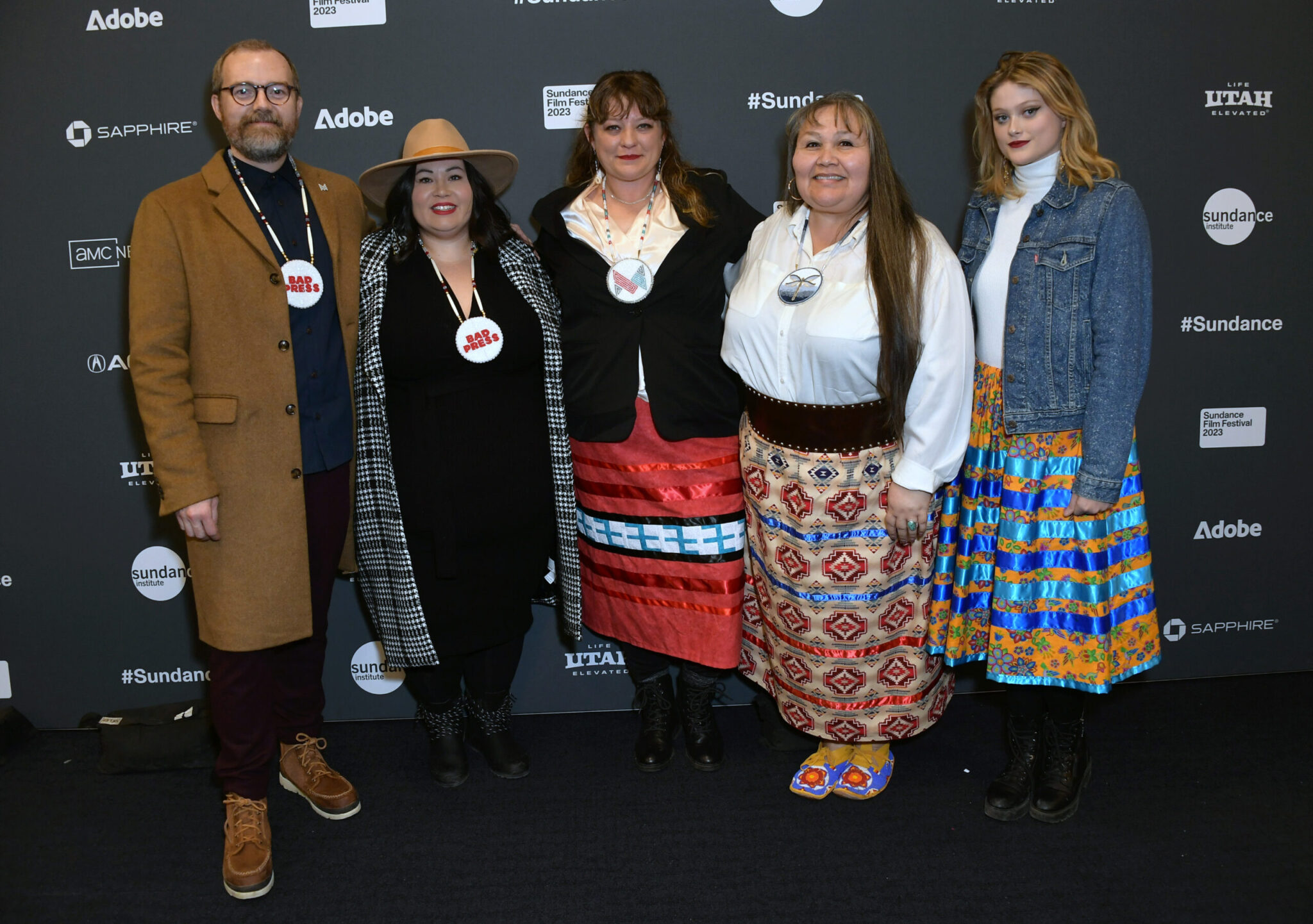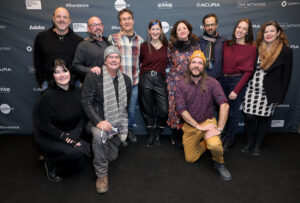PARK CITY, UTAH – JANUARY 22: (L–R) Joe Peeler, Rebecca Landsberry-Baker, Angel Ellis, and Dode Barnett attend the 2023 Sundance Film Festival “Bad Press” premiere at The Ray Theatre on January 22, 2023 in Park City, Utah. (Photo by Unique Nicole/Getty Images)
By Lucy Spicer
Standing in the newspaper archives of Mvskoke Media, journalist Angel Ellis remarks, “If I look back at that newspaper from 30 years ago, I would think there’s not been a problem at the tribe, ever.”
Directing duo Rebecca Landsberry-Baker and Joe Peeler’s Bad Press acknowledges the expectation placed on marginalized groups to be exceptional. “We want to show the world how good we’re doing, because this world is designed to tear us down,” says Ellis. But when the desire to project a positive image becomes more important than a policy of transparency, censorship is inevitable.
Bad Press, which premiered at The Ray Theatre on January 22, follows Ellis as she and her colleagues at Mvskoke Media fight to protect the right of free press in the Muscogee (Creek) Nation in Oklahoma. When the Muscogee (Creek) Nation National Council abruptly voted to repeal the tribe’s free press act at an emergency session on November 8, 2018, no one at Mvskoke Media had been consulted. Suddenly, the independent media organization was to be overseen by the Secretary of the Nation and Commerce, who had the power to edit reports and determine what could and could not be published.
What’s more, 2019 was an election year. How could journalists guarantee accurate reporting about the candidates for Principal Chief (several of whom continued to campaign amid allegations of unlawful behavior) when they were under the thumb of the government? Luckily, the journalists at Mvskoke Media were more than willing to put up a fight. Their community deserved better; they deserved honest reporting.
Since all these events were unfolding in real-time while the documentary was being filmed, the stakes feel high and very real. “I remember me and Angel had a conversation after the constitutional amendment got voted down in the middle of the film,” recalls Peeler at the post-premiere Q&A. “I told Angel: ‘I don’t know if this movie’s gonna have a happy ending.’”
The camera sticks closely to Ellis, not shying away from the feelings of frustration and even desperation that accompany the uphill battle that is effecting legislative change. But moments of humor are present as well, and the camaraderie among the employees at Mvskoke Media is uplifting. Ellis’ irrepressible spirit is just as infectious and authentic in person as it is in the film, as demonstrated by the energy she brought to the film’s post-premiere discussion.
“Since the film, I walked into a budget hearing, and I was like, ‘Fund me, bitches.’” she says to a laughing audience. “And they did!”
The Q&A, like the film, was a genuine call to action. “Angel will call you, also, if you give her your number!” says Landsberry-Baker. “Just slide into my DMs at midnight,” adds Ellis jokingly. But she’s not kidding; she’s on a mission to see that a free press is guaranteed in every tribe in Indian Country. “It impacted us enough in our community to give the power back to the people, and so whatever it takes to get all of Indian Country on the same page and empower those people’s voices is what I’m willing to do.
Bad Press reminds us that the road to change includes steps back as well as steps forward. But, more importantly, the film shows that it only takes one person speaking out to spark that change.







